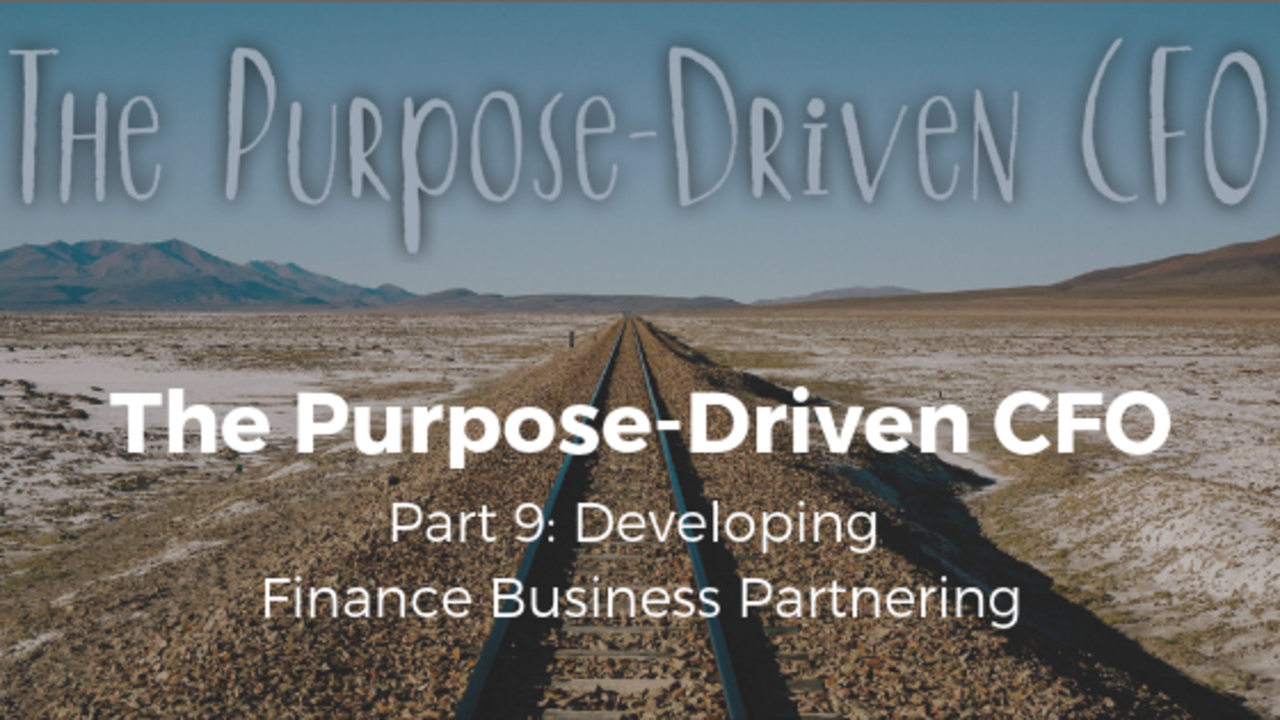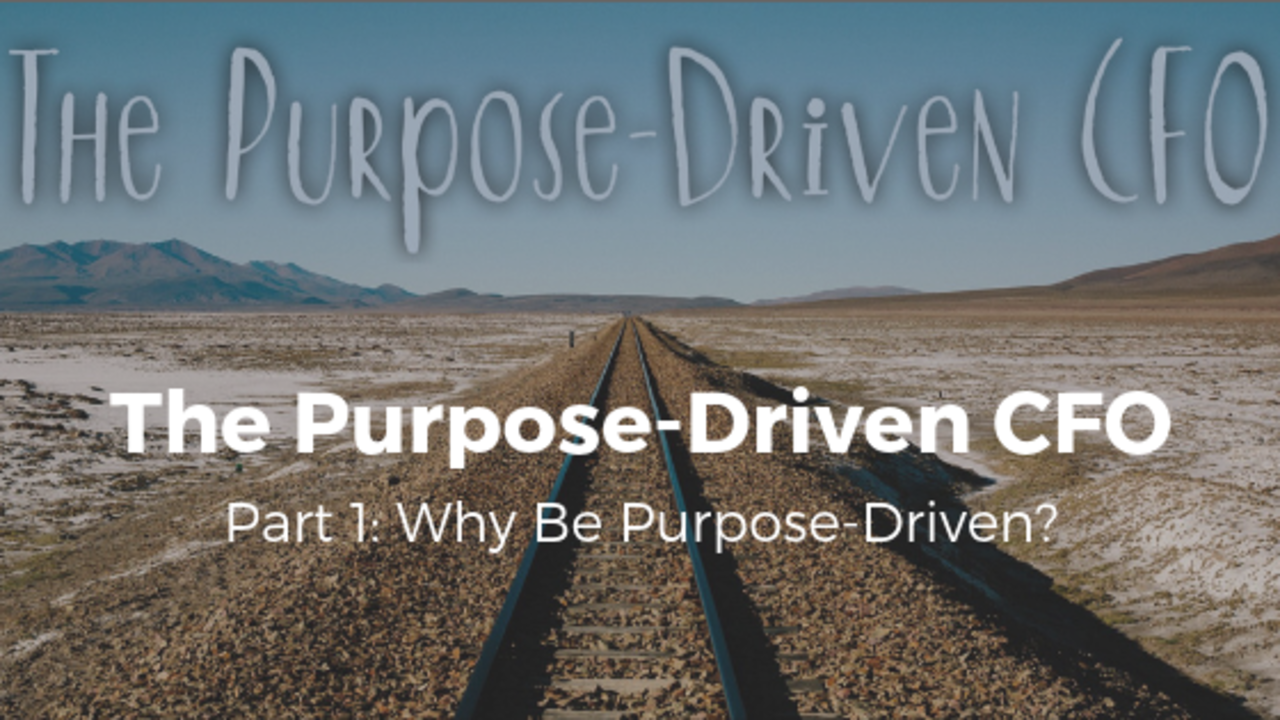Why You Need (To Be) A Purpose-Driven CFO

By Andy Burrows
Generalisations About Finance
As I reflect on my 25+ years of working in the Finance departments of a variety of businesses, the common feeling I get is that of busyness.
Finance is a very busy function to work in. There are always deadlines. Monthly reporting. Quarterly forecasting. Annual budgeting and medium term planning. If there’s a big project, Finance is in the thick of it, called in at short notice to “pull the numbers together”. We are always firefighting. Transactions gone astray. New products to code that no-one told us about. New suppliers that need to be paid before we knew they even existed. The pace is frenetic.
And in the midst of that busyness, we forget why we do what we do.
And while investors, owners and shareholders rely on the CFO to lead the business with the CEO, by and large we’re not actually very good leaders.
We think we’re strategic thinkers, but we’re not.
I don’t say that lightly. But the reason we’re not strategic, why we’re not g...
The Purpose-Driven CFO Part 9: Developing Finance Business Partnering

By Andy Burrows
[First published 20th July 2017]
[This article is also on LinkedIn - why not "Follow+" Andy and give the article a "like"?]
I don’t take it for granted that anyone reading this will have read the other articles in this series. Perhaps you have a particular interest in Finance Business Partnering. So, for new readers, I’ll just briefly reiterate the premise of The Purpose-Driven CFO.
That is, what I set out to do was to investigate what difference it makes going back to first principles with the things we do in Finance, and asking “why?” I know from experience that understanding why we do things can increase our motivation in doing them. Once you can see the end goal, and see the benefits of that goal, any tedious, mundane, difficult or complex steps towards it become less burdensome. And often asking “why” reveals implications that will change the way we do things. That has certainly been the case with all the other areas I’ve looked at from this angle.
So, this t...
The Purpose-Driven CFO Part 1: Why Be Purpose-Driven?

By Andy Burrows
[First published 31st January 2017]
My Purpose
My intention is to start a series of articles that look at what it means to be “purpose-driven” in Finance. I’ve felt for a while that having a clear purpose is motivating. It helps teams to gel. It helps parts of the organisation to understand how they fit together with the other parts, and how together they contribute to an overarching higher objective. And it helps people to benchmark their decisions, testing the extent to which they are helping towards those objectives and goals.
In fact, if you’ve read much of what I’ve written previously, you’ll know that one of my favourite sayings is that we should be “intentional and analytical” in what we do. That basically means understanding why you want to do something, what you want to achieve by doing it, and then measuring to check how successful you were. The analysis will help you improve and learn from your mistakes, but you won’t know what success looks like and how ...




